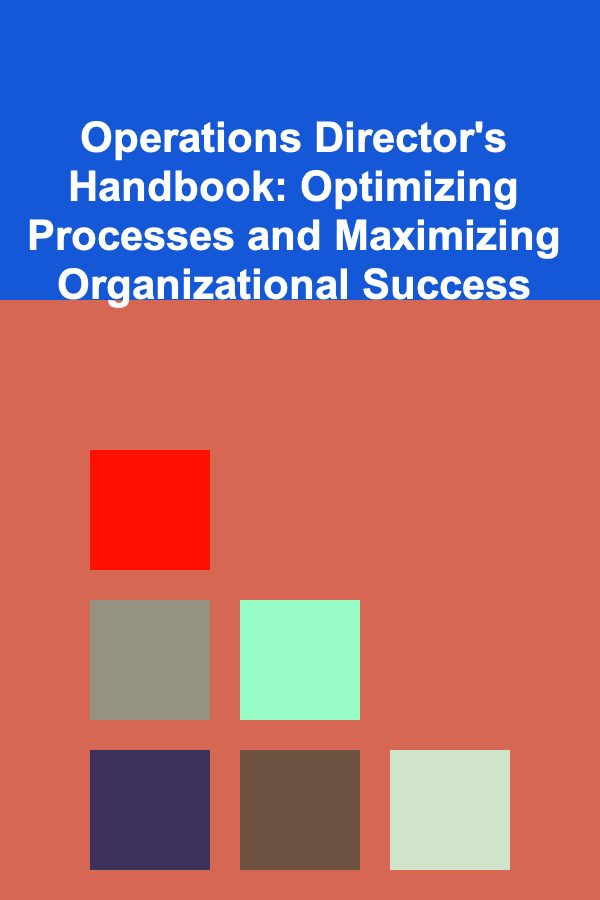
How To Build a Gaming Community Online
ebook include PDF & Audio bundle (Micro Guide)
$12.99$7.99
Limited Time Offer! Order within the next:

Building an online gaming community is a powerful way to connect like-minded individuals who share a passion for gaming. Whether it's for a specific game, a genre of games, or a broader gaming culture, creating a community is about fostering engagement, establishing a sense of belonging, and providing a space for players to interact, share experiences, and grow. In this article, we will explore the steps and best practices for building a thriving online gaming community, including tips on platform selection, community management, engagement strategies, and growth.
Understanding the Importance of a Gaming Community
Online gaming communities serve several important purposes. They provide a platform for players to share their passion, learn from one another, and build lasting friendships. Communities offer support in terms of tips, advice, and troubleshooting, and they can even influence game development by giving feedback directly to developers.
Furthermore, gaming communities have the potential to be a strong source of influence in the gaming industry. Developers often take note of community feedback, and many gaming companies actively engage with their communities to improve their products. A well-managed community can drive traffic, boost engagement, and even encourage loyalty and retention among players.
Why Building a Gaming Community is Beneficial
- Increased Engagement: Communities offer a space where players can talk about their favorite games, share tips, and participate in discussions. This continuous engagement not only keeps the players active but also makes the community more appealing to new members.
- Better Retention Rates: Players are more likely to stick with a game when they feel a connection to others. By creating a community, you encourage players to return and stay engaged for longer periods of time, which helps maintain an active user base.
- Stronger Feedback Loop: Communities provide an ongoing feedback loop for developers and content creators. Members often share insights on game mechanics, issues, and bugs, which helps improve the gaming experience.
- Sense of Belonging: Gaming communities offer a sense of belonging for players who might not have anyone to play with in their immediate social circles. They allow gamers to connect with others who share similar interests and experiences, especially when their personal network doesn't understand gaming culture.
Step-by-Step Guide to Building an Online Gaming Community
1. Identify Your Niche
One of the first steps in building a gaming community is identifying your niche. The gaming industry is vast, and while some communities can be all-encompassing, most successful communities tend to focus on a specific game, genre, or aspect of gaming culture. Here are a few common types of gaming communities:
- Game-Specific Communities : These are communities dedicated to a specific game, whether it's a popular title like Fortnite , League of Legends , or Minecraft. Players within these communities focus on discussing gameplay strategies, sharing content, and organizing events.
- Genre-Specific Communities: Some communities focus on a specific genre, such as first-person shooters, role-playing games, or strategy games. These communities cater to players who are passionate about particular game types.
- Esports Communities: Esports gaming communities focus on competitive play, offering a platform for players to organize teams, compete in tournaments, and discuss strategies related to the esports scene.
- Game Development Communities: These communities revolve around the process of game creation and development, attracting aspiring developers, designers, and artists who wish to collaborate and share knowledge.
Identifying your niche early on helps focus your efforts, define your target audience, and ensure that the community remains relevant and focused. A gaming community with a clear focus will attract members who are genuinely interested in that specific area.
2. Choose the Right Platform
Selecting the right platform for your community is a crucial step. The platform you choose will determine how people interact, share content, and access information. Here are some of the most popular platforms for building gaming communities:
- Discord: Discord is by far one of the most popular platforms for gaming communities. It provides voice, video, and text chat, as well as robust moderation tools. Discord is highly customizable and can be tailored for specific games or communities. You can create multiple channels for different discussions, and it's easy to integrate bots that can handle tasks like welcoming new members, monitoring behavior, and playing music during streams.
- Reddit: Reddit is a great platform for community discussions and sharing content. Subreddits related to specific games or gaming topics are a popular choice for players to discuss news, strategies, and updates. Reddit allows for more anonymous interactions and voting on content, which can help popular posts rise to the top.
- Facebook Groups: Facebook groups allow you to build a community while reaching a larger audience. These groups can be private or public and allow members to share posts, photos, videos, and links. Facebook groups are ideal for communities that want to integrate with other social media platforms or for those targeting a wider, more general audience.
- Twitch: While primarily a live-streaming platform, Twitch also offers an excellent way to build a community around specific streamers or games. Streamers can build a loyal following by interacting with their audience in real-time and creating a sense of inclusion. Followers can use chat to interact with the streamer and other viewers, and this engagement creates a strong sense of community.
- Twitter: Twitter is often used for broadcasting quick updates and engaging in conversations with other gamers, influencers, and developers. By creating hashtags or Twitter accounts dedicated to specific games or topics, you can tap into existing gaming trends and engage with players across the globe.
The platform you choose depends on the type of interaction you want to foster within your community. A more casual, social community may work well on Facebook, while a dedicated and close-knit group might find Discord or Reddit to be better suited to their needs.
3. Establish Community Guidelines
Community guidelines are essential to maintaining a healthy, respectful, and enjoyable environment. Setting clear expectations from the start helps prevent toxicity and encourages positive interaction. Consider implementing the following community guidelines:
- Respectful Behavior: Encourage members to treat others with kindness and respect. Toxicity, harassment, or hate speech should not be tolerated.
- No Spamming or Self-Promotion: It's essential to set boundaries regarding self-promotion, spamming, and advertising. While it's great to share content, make sure members are encouraged to contribute meaningfully rather than using the community solely for personal gain.
- Follow Platform-Specific Rules: Ensure that your community follows the specific rules and terms of service set forth by the platform you're using.
- Moderation Policies: Establish a moderation system to ensure that inappropriate content is removed quickly. Moderators should be proactive in handling rule violations and keeping the peace.
Community guidelines create a foundation for your community and help set expectations. By ensuring that your members understand and follow these guidelines, you can maintain a positive atmosphere and prevent conflicts.
4. Foster Engagement and Interaction
Building a community is about more than just creating a space for people to gather---it's about fostering interaction and engagement. To keep the community active and growing, consider the following strategies:
- Host Regular Events: Events like tournaments, giveaways, game nights, or Q&A sessions with developers can keep the community engaged and excited. Special events provide a sense of exclusivity and make members feel more connected to the community.
- Create Shareable Content: Encourage members to share their experiences, whether it's fan art, game clips, strategies, or memes. Having regular content challenges or themes can stimulate creativity and keep the community active.
- Engage with Members: Take time to interact with members directly, respond to their comments, and acknowledge their contributions. Active participation from the community leader or moderators shows that the community is well-managed and valued.
- Encourage Member Contributions: Empower your members to contribute by allowing them to create content, moderate discussions, or even help in organizing events. This fosters a sense of ownership and involvement, encouraging them to stay active.
- Use Bots for Automation: In platforms like Discord, bots can help with moderation, running games, and even delivering news updates. Bots can automate routine tasks, freeing up moderators to focus on more important matters and keeping the community lively.
5. Promote Your Community
Once your community is up and running, you need to actively promote it to attract new members. Here are a few strategies to consider:
- Leverage Social Media: Use platforms like Twitter, Instagram, and YouTube to promote your community. Share highlights, member achievements, and upcoming events to spark interest and encourage others to join.
- Collaborate with Influencers: Reach out to streamers, YouTubers, or content creators who align with your community's niche. Influencers can help expose your community to a broader audience and bring in new members.
- Engage in Cross-Promotion: Collaborate with other gaming communities or forums that share similar interests. Cross-promotion can help you attract like-minded individuals and grow your community exponentially.
- Paid Ads: If you have the budget, consider using paid advertisements on social media platforms or gaming websites. This can help get the word out to people who may not have otherwise discovered your community.
6. Monitor Growth and Adapt
As your community grows, it's important to monitor its health and adapt your strategies as needed. Look at engagement metrics, such as active members, participation in events, and content sharing. These insights can help you refine your community-building efforts and ensure that it continues to thrive.
Regularly asking for feedback from your members can help identify pain points or areas for improvement. Listening to your community's needs and being flexible enough to make changes is a key factor in building a sustainable and successful gaming community.
Conclusion
Building an online gaming community is a rewarding but challenging endeavor that requires dedication, patience, and a clear strategy. By understanding the importance of niche selection, choosing the right platform, setting clear community guidelines, fostering engagement, promoting your community, and being adaptable, you can build a thriving gaming community that provides value to its members and creates a lasting impact on the gaming culture. A strong, engaged community will not only enrich the player experience but also contribute to the wider gaming ecosystem, ensuring the community's success for years to come.

How to Clean Your Home When You're Short on Time
Read More
How to Create a Holiday Focal Point with a Statement Tree
Read More
How to Maximize Vertical Space in Your Pantry
Read More
Operations Director's Handbook: Optimizing Processes and Maximizing Organizational Success
Read More
How to Design a Morning Routine Checklist for Creative Professionals
Read More
10 Tips for Energy-Efficient Lighting Upgrades
Read MoreOther Products

How to Clean Your Home When You're Short on Time
Read More
How to Create a Holiday Focal Point with a Statement Tree
Read More
How to Maximize Vertical Space in Your Pantry
Read More
Operations Director's Handbook: Optimizing Processes and Maximizing Organizational Success
Read More
How to Design a Morning Routine Checklist for Creative Professionals
Read More